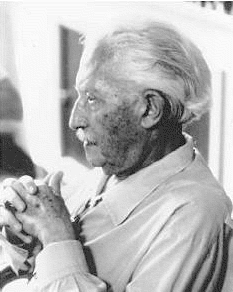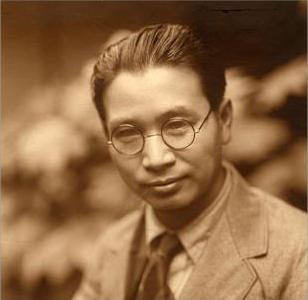A Quote by Leo Tolstoy
How interesting it would be to write the story of the experiences in this life of a man who killed himself in his previous life; how he stumbles against the very demands which had offered themselves before, until he arrives at the realization that he must fulfill those demands. The deeds of the preceding life give direction to the present life.
Related Quotes
Life consists with Wildness. The most alive is the wildest. Not yet subdued to man, its presence refreshes him. One who pressed forward incessantly and never rested from his labors, who grew fast and made infinite demands on life, would always find himself in a new country or wilderness, and surrounded by the raw material of life. He would be climbing over the prostrate stems of primitive forest trees.
How did it happen that now he could see everything so clearly. Something had given him leave to live in the present. Not once in his entire life had he come to rest in the quiet center of himself but had forever cast himself from some dark past he could not remember to a future that did not exist. Not once had he been present for his life. So his life had passed like a dream. Is it possible for people to miss their lives the way one can miss a plane?
Write down the area of your life that most needs your attention right now and then write out all the details you saw of your soul's vision for this part of your life. What will that part of your life look like? How will achieving your goal change your life? How will it change the life of those around you? When you reach your goal, when you fulfill that desire, what will it make room for? Write that all down.
These same experiences make of the sequence of life cycles a generational cycle, irrevocably binding each generation to those that gave it life and to those for whose life it is responsible. Thus, reconciling lifelong generativity and stagnation involves the elder in a review of his or her own years of active responsibility for nurturing the next generations, and also in an integration of earlier-life experiences of caring and of self-concern in relation to previous generations.
Once a man recognizes himself as a being surrounded by other beings in this world and begins to respect his life and take it to the highest value, he becomes a thinking being. Then he values other lives and experiences them as part of his own life. With that, his goal is to help everyone take their life to the highest value; anything which limits or destroys a life is evil. That is morality. That is how men are related to the world around them.
To affirm life is to deepen, to make more inward, and to exalt the will-to-life. At the same time the man who has become a thinking being feels a compulsion to give every will-to-live the same reverence for life that he gives to his own. He experiences that other life as his own. He accepts as being good: to preserve life, to raise to its highest value life which is capable of development; and as being evil: to destroy life, to injure life, to repress life which is capable of development. This is the absolute, fundamental principle of the moral, and it is a necessity of thought.
Finally, this is one way to reconcile the delight in beauty with the bourgeois life. Aschenbach, on one reading, has spent virtually all of his adult life balancing his restrained homosexuality, which is bound together with his sensitivity to beauty and thus with his artistic vocation, against the demands of conventional society.
Life is an opportunity, benefit from it. Life is beauty, admire it. Life is a dream, realize it. Life is a challenge, meet it. Life is a duty, complete it. Life is a game, play it. Life is a promise, fulfill it. Life is sorrow, overcome it. Life is a song, sing it. Life is a struggle, accept it. Life is a tragedy, confront it. Life is an adventure, dare it. Life is luck, make it. Life is too precious, do not destroy it. Life is life, fight for it.
You have the need and the right to spend part of your life caring for your soul. It is not easy. You have to resist the demands of the work-oriented, often defensive, element in your psyche that measures life only in terms of output - how much you produce - not in terms of the quality of your life experiences. To be a soulful person means to go against all the pervasive, prove-yourself values of our culture and instead treasure what is unique and internal and valuable in yourself and your own personal evolution.
For, owners of their deeds (karma) are the beings, heirs of their deeds; their deeds are the womb from which they sprang; with their deeds they are bound up; their deeds are their refuge. Whatever deeds they do-good or evil-of such they will be the heirs. And wherever the beings spring into existence, there their deeds will ripen; and wherever their deeds ripen, there they will earn the fruits of those deeds, be it in this life, or be it in the next life, or be it in any other future life.
What a wee little part of a person's life are his acts and his words! His real life is led in his head, and is known to none but himself. All day long, the mill of his brain is grinding, and his thoughts, not those of other things, are his history. These are his life, and they are not written. Everyday would make a whole book of 80,000 words -- 365 books a year. Biographies are but the clothes and buttons of the man -- the biography of the man himself cannot be written.
Not everything in man's life is summed up in the problem of food. Anyone who thinks that a civilization can be founded on bread alone makes a great mistake. No matter how much bread there is, it cannot produce a man: it can only nourish him. Life exists before food. Man's life comes from the very origin of life. Therefore civilization does not follow the forms of production. All social life follows the action of life.




































